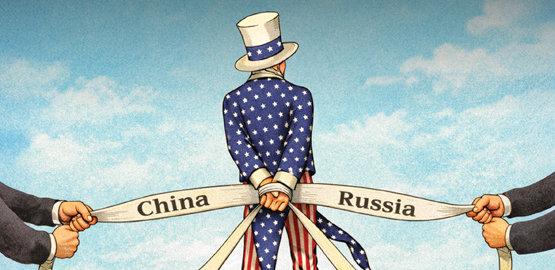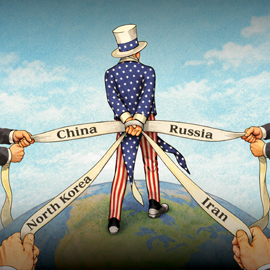News
US Military’s Nightmare: Stealth, Carriers & Subs Are Obsolete?
“Since the Cold War, submarines, particularly quiet American ones, have been considered largely immune to adversary A2/AD capabilities. But the ability of submarines to hide through quieting alone will decrease as each successive decibel of noise reduction becomes more expensive and as new detection methods mature that rely on phenomena other than sounds emanating from a submarine. These techniques include lower frequency active sonar and non-acoustic methods that detect submarine wakes or (at short ranges) bounce laser or light-emitting diode (LED) light off a submarine hull. The physics behind most of these alternative techniques has been known for decades, but was not exploited because computer processors were too slow to run the detailed models needed to see small changes in the environment caused by a quiet submarine. Today, ‘big data’ processing enables advanced navies to run sophisticated oceanographic models in real time to exploit these detection techniques. As they become more prevalent, they could make some coastal areas too hazardous for manned submarines.”
Trump’s Madman Theory Is Simply Crazy
Even in the Donald Trump era, it's not every day you see the chairman of the Senate Foreign Relations Committee publicly accuse a president from his own party of being a mental infant and leading the country down "the path to World War III." The spat between Trump and Senator Bob Corker has thus generated headlines for the window it has opened onto an astonishing rift between the president and one of the most powerful Republicans in Congress.
‘I Now Hate My Ship’: Surveys Reveal Disastrous Morale on Cruiser Shiloh
The surveys suggest the Navy has learned nothing from prior toxic commands, said Jan van Tol, a retired captain who commanded several warships during his Navy career, including two from the Japan-based Forward Deployed Naval Forces of 7th Fleet...
China Annexes the South China Sea with the “Cabbage Strategy.”
China annexes the South China Sea with the “Cabbage Strategy.” An interview with Toshi Yoshihara, Center for Strategic and Budgetary Assessment.
How high-tech Navy went off course on basic seamanship skills
Complacency, however, can bedevil even the most skilled mariner, even when operations tempo is as high as it is for forward-deployed ships of the 7th Fleet in the Pacific, said Peter Haynes, a former Navy captain who retired in 2016 and is a fellow at the Center for Strategic and Budgetary Assessments, a Washington-based think tank.
‘One hand tied behind your back’: Why DoD’s empty policy chair matters
Eric Edelman, who had the USD-P job for the last four years of the Bush administration, called the breadth of issues covered by the job “staggering.”…

























